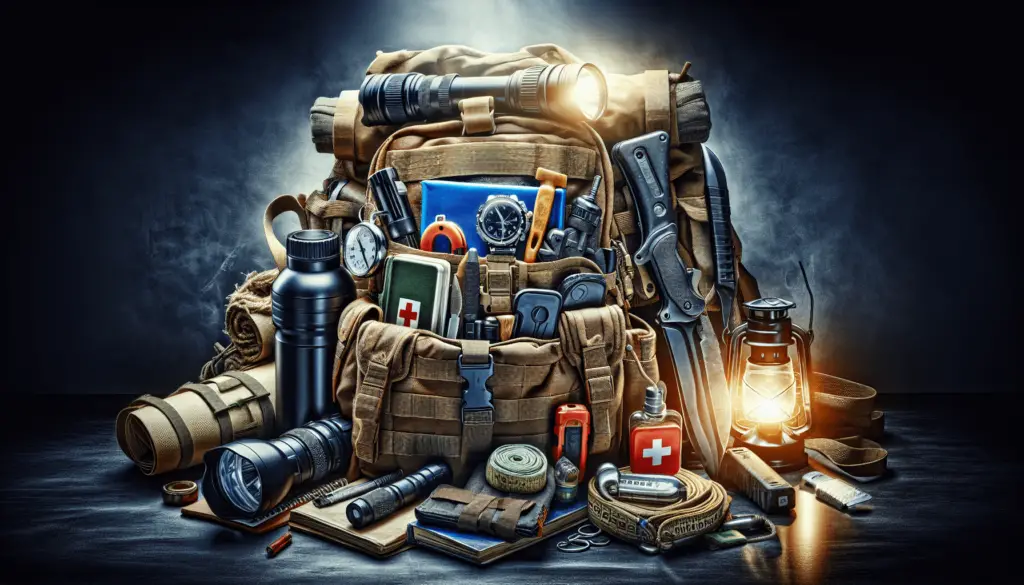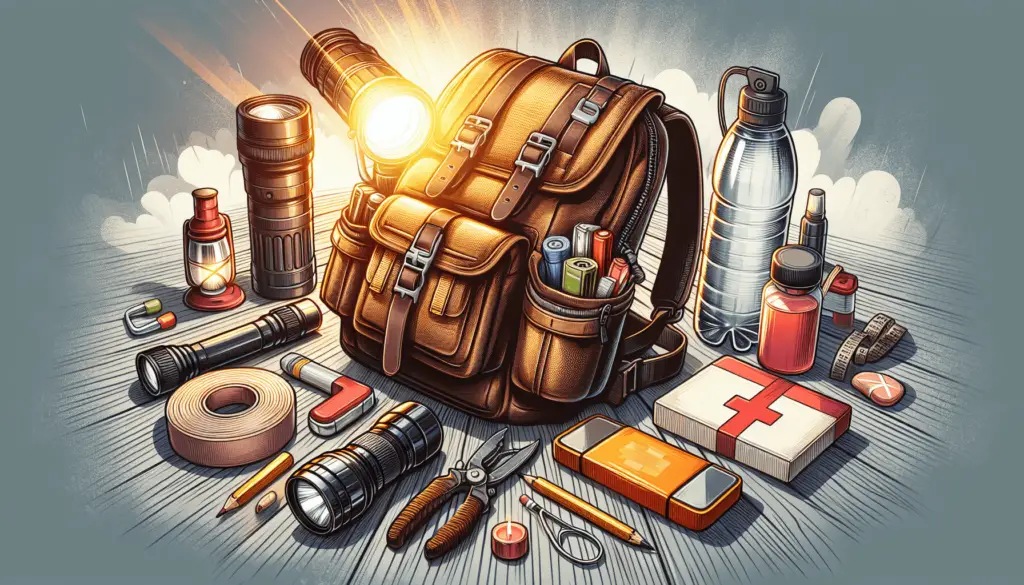Welcome to the world of prepping! In this article, we will explore the key tips and strategies for beginners to avoid common pitfalls while preparing for emergencies and disasters. Whether you are new to prepping or looking to refine your skills, this guide will provide you with valuable insights to help you navigate the prepping journey successfully. With proper preparation and a positive mindset, you can build a strong foundation for your prepping endeavors and ensure that you are ready to face any challenges that may come your way. Let’s dive in and get started on your prepping journey! Have you ever considered starting a prepping journey but feel overwhelmed by all the information out there? Don’t worry, I’ve got you covered. In this article, we’ll dive into the world of prepping for beginners and discuss common pitfalls to avoid. By the end of this guide, you’ll feel more confident and prepared to embark on your prepping journey.
Understanding the Basics of Prepping
Before we dive into the common pitfalls to avoid, let’s start by understanding the basics of prepping. Prepping is all about being prepared for emergencies or disasters, both big and small. It involves having the necessary supplies, skills, and knowledge to sustain yourself and your loved ones when the unexpected happens.
Why Prepping Is Important
Prepping is important because it provides a sense of security and peace of mind knowing that you are prepared for whatever comes your way. Whether it’s a natural disaster, power outage, or economic crisis, being prepared can make a world of difference in how you and your loved ones are able to weather the storm.
Getting Started with Prepping
Getting started with prepping is easier than you might think. Begin by assessing your current situation and identifying any potential risks or threats in your area. From there, make a list of the supplies you’ll need and gradually start building up your prepping supplies over time. Remember, prepping is a journey, not a destination, so take it one step at a time.
Common Pitfalls to Avoid as a Beginner Prepper
Now that you have a basic understanding of prepping, let’s talk about some common pitfalls to avoid as a beginner prepper. By being aware of these pitfalls, you’ll be better equipped to navigate the world of prepping and set yourself up for success.
Pitfall #1: Overbuying Supplies
One common pitfall that beginner preppers often fall into is overbuying supplies. It can be tempting to stockpile as many supplies as possible, but this can quickly lead to clutter and waste. Instead, focus on building a well-rounded supply of essentials that you’ll actually use in an emergency. Make a list of the supplies you need, prioritize the most important ones, and gradually build up your stockpile over time.
Pitfall #2: Neglecting to Rotate Supplies
Another pitfall to avoid is neglecting to rotate your supplies. It’s important to regularly check the expiration dates on your food, water, and other supplies and rotate them out as needed. This will ensure that your supplies are fresh and ready to use in an emergency. Create a rotation schedule and mark expiration dates on your supplies to make it easier to keep track of.
Pitfall #3: Lack of Skills and Knowledge
One of the biggest pitfalls for beginner preppers is a lack of skills and knowledge. While having supplies is important, knowing how to use them effectively is equally crucial. Take the time to learn essential skills such as first aid, fire starting, and basic survival techniques. Practice these skills regularly to build confidence and proficiency.
Pitfall #4: Not Having a Plan
Another common pitfall for beginner preppers is not having a solid plan in place. In an emergency, having a plan can make all the difference in how you and your loved ones respond. Sit down with your family and create an emergency plan that outlines what to do in various scenarios. Include important contact information, evacuation routes, and meeting points in your plan.
Pitfall #5: Ignoring Physical Fitness
Physical fitness is often overlooked by beginner preppers, but it plays a crucial role in your ability to survive and thrive in an emergency. Regular exercise and maintaining good physical health can greatly increase your chances of surviving a disaster. Incorporate physical fitness into your daily routine by going for walks, doing yoga, or participating in other forms of exercise.
Pitfall #6: Overspending on Gear
While having the right gear is important for prepping, overspending on gear is a common pitfall for beginners. It can be tempting to buy the latest and greatest gadgets, but oftentimes simple, affordable gear can get the job done just as effectively. Do your research, prioritize essential gear items, and make informed decisions to avoid overspending.

Tips for Successful Prepping as a Beginner
Now that we’ve discussed common pitfalls to avoid, let’s talk about some tips for successful prepping as a beginner. By following these tips, you’ll be better prepared to handle whatever comes your way.
Tip #1: Start Small and Build Up Over Time
One of the best tips for beginner preppers is to start small and build up your supplies over time. Rome wasn’t built in a day, and neither is a well-stocked prepping supply. Begin by focusing on the essentials such as food, water, and first aid supplies, and gradually expand your supplies as needed. Remember, it’s better to start small and build a solid foundation than to overwhelm yourself with too much too soon.
Tip #2: Focus on Versatile and Multi-Use Supplies
When building up your prepping supplies, focus on versatile and multi-use items that can serve multiple purposes. This will help you save space and money while increasing the functionality of your supplies. Items like duct tape, paracord, and multi-tools are great examples of versatile supplies that can be used in a variety of situations.
Tip #3: Practice Your Skills Regularly
As mentioned earlier, having the right supplies is important, but knowing how to use them effectively is equally crucial. Take the time to practice your skills regularly, whether it’s starting a fire, administering first aid, or setting up a temporary shelter. The more you practice, the more confident and prepared you’ll be in an emergency.
Tip #4: Stay Informed and Updated
Stay informed and updated on the latest news, trends, and developments in the world of prepping. Join online forums, attend workshops and seminars, and read books and articles to expand your knowledge and stay current on best practices. By staying informed, you’ll be better equipped to make informed decisions and adapt to changing circumstances.
Tip #5: Build a Community and Network
Building a community and network of like-minded preppers can be incredibly valuable in your prepping journey. Connect with others who share your interest in prepping, share information and resources, and collaborate on projects and initiatives. Having a strong community to lean on can provide support, advice, and encouragement when you need it most.
Tip #6: Stay Positive and Flexible
Finally, stay positive and flexible in your prepping journey. Prepping can be a rewarding and empowering experience, but it also comes with its challenges. Stay positive and focused on your goals, and be willing to adapt and adjust your plans as needed. Remember, prepping is not about living in fear, but rather about being prepared and resilient in the face of adversity.
Conclusion
In conclusion, prepping for beginners doesn’t have to be overwhelming or intimidating. By understanding the basics of prepping, avoiding common pitfalls, and following the tips outlined in this article, you’ll be well on your way to becoming a confident and prepared prepper. Remember, prepping is a journey, not a destination, so take it one step at a time and enjoy the process. Stay informed, stay prepared, and stay safe. You’ve got this!

